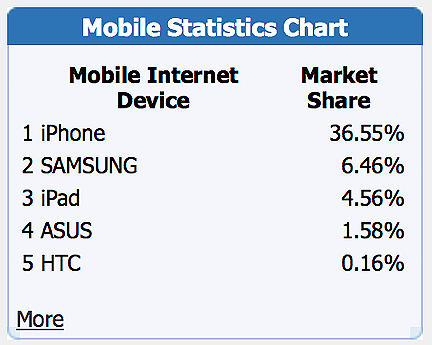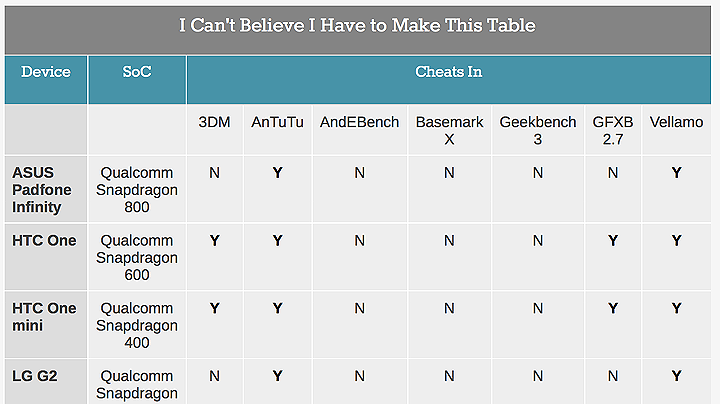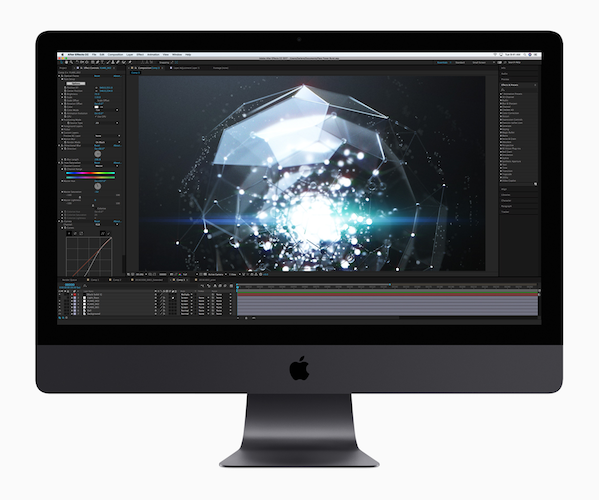Cassandra: Thursday Review - Overflowing New Year
By Graham K. Rogers

As this is the beginning of the year, and the working week is just starting for some - just wait till next week - apart from ripples from the White House, a fair amount of news that interests me is beginning to appear.
Apple announced that its conference call to discuss results for the First Quarter 2018 is scheduled for Thursday, 1 February 2018, at 2:00 p.m. PT (5:00 p.m. ET), which is 5am here. The annual shareholders meeting will be on February 13th at the Steve Jobs Theater. No doubt the quarterly results will please James Hein (or not) who confidently predicts that Apple will continue its decline. What are they smoking at the Bangkok Post these days?
 As a note, last time I checked, the Bangkok Post was languishing around 80 in the top 100 sites in Thailand: now it is not even in the top 100 (Truehits). I confidently predict that the Bangkok Post will continue its decline.
As a note, last time I checked, the Bangkok Post was languishing around 80 in the top 100 sites in Thailand: now it is not even in the top 100 (Truehits). I confidently predict that the Bangkok Post will continue its decline.
Truehits shows that, while Windows 7 has 14.91% of the market and Windows XP (still) 1.54%, macOS is showing 22.34% for a platform that apparently is smaller than PCs. In addition, Chrome (77.39%), Safari (16.39%) and Firefox (2.76%) are shown as the top browsers.
 Earlier I discussed the latest push from Wall Street to help Apple spend its money, by suggesting it buy Netflix. As always a perfect argument (from the point of investment analysts) was put forward. Needless to say, Apple said nothing. A later item from Jeff Gamet (The MacObserver) poured cold water on that rumour. In the last few hours, however, it was announced that Cupertino has picked up another company: Buddybuild (Brian Heater, TechCrunch).
Earlier I discussed the latest push from Wall Street to help Apple spend its money, by suggesting it buy Netflix. As always a perfect argument (from the point of investment analysts) was put forward. Needless to say, Apple said nothing. A later item from Jeff Gamet (The MacObserver) poured cold water on that rumour. In the last few hours, however, it was announced that Cupertino has picked up another company: Buddybuild (Brian Heater, TechCrunch).
Buddybuild is a mobile iteration platform company and its existing customers will continue to be supported, while Apple will incorporate the tools into XCode. Reading the homepage text I wonder if this could be used for part of Apple's anticipated Project Marzipan
With the recent success of Apple, despite what Bangkok Post pundits may insist, the CEO (along with other executives) had a fairly large performance bonus paid to him making his total $102 million for the year. Many will remember that former Microsoft CEO, Steve Ballmer had his cut. The Apple Board also made a decision that will affect Cook's travel plans as he is no longer allowed to fly on commercial aircraft: "in the interests of security and efficiency based on our global profile and the highly visible nature of Mr. Cook's role as CEO" (Chance Miller, 9to5 Mac). The kidnap scenario springs to mind.
As well as news from the White House which has been exciting commentators for the last couple of days and increased earlier today when extracts from a book were published, I have been following a story about insecurities with processors. That first appeared yesterday and seemed to point to a long-standing hole in Intel chips, perhaps going back 10 years. This was called "Meltdown".
 The major players have been working on this for a while in secret - sometimes this is necessary - and Apple is known already to have released a fix in the 10.13.2 update for one of what now is known to be 2 problems, with the second named Spectre. The interest increased somewhat when it was found that these insecurities were also found in AMD and ARM chips, although just how damaging they are is unclear. This is all being investigated currently and Rene Ritchie (iMore) has a wide-ranging examination of problems facing all chips, with special reference to Mac and iOS.
The major players have been working on this for a while in secret - sometimes this is necessary - and Apple is known already to have released a fix in the 10.13.2 update for one of what now is known to be 2 problems, with the second named Spectre. The interest increased somewhat when it was found that these insecurities were also found in AMD and ARM chips, although just how damaging they are is unclear. This is all being investigated currently and Rene Ritchie (iMore) has a wide-ranging examination of problems facing all chips, with special reference to Mac and iOS.
One side note that could lead to criminal proceedings if proved, was the news that the CEO of Intel unloaded $24 million Intel shares in June (Troy Wolverton, Business Insider), although he insists that this is not related. Well, he would, wouldn't he?

Apple's battery story is beginning to get lost in the news cycle with White House claims and the (Intel, AMD, ARM) processor news. I wrote at length (again) in this week's Wednesday File (38) on the problems Apple has caused for itself, not by fixing a battery problem, but by keeping quiet about it. While other companies have begun to release claims that they are not doing the same, there is much hypocrisy there, particularly from Samsung, LG and HTC. Let me exclude Motorola from that: you'll see why.
I teach Ethics and Morals to computer engineers and a couple of years ago took a long look at benchmarking. This started with VW and AUDI whose engineers developed software that detected when emissions testing was taking place and changed outputs to fool the testing software. Several arrests have subsequently been made, other companies were also found to be doing this and fines of several billion dollars have been levied. As a knock-on effect, the days of diesel-powered vehicles apear numbered (at least in Europe) and those same companies are making an effort to develop technology for electrical cars.
Not long after, AnandTech (Anand Lal Shimpi & Brian Klug) found that certain handset makers were taking a similar path: software detected the use of benchmarking tests and altered CPU or GPU output to produce false statistics. The full table that is shown in the article is worth looking at. They did a considerable amount of research and checked with the manufacturers. Part of the table (screenshot) is shown here

Part of Benchmarking Report Table from AnandTech Article
You should use the link and at least look at the full table to have an idea of the implications here. The full article makes a sobering read. Note Anand Lal Shimpi and Brian Klug report that "With the exception of Apple and Motorola, literally every single OEM we've worked with ships (or has shipped) at least one device that runs this silly CPU optimization." There were a few follow-up articles in the technical press, but little in the mainstream media; and no one was sued.
If anything, this false reporting on new devices (just like VW) is worse than what Apple has done: limit output to preserve the battery, after a period of use at a time when batteries are expected to deteriorate (Andrei Frumusanu, AnandTech). The particular manifestation was worse than normal with Apple's devices as the CPU is unique to Apple and the batteries have smaller capacities. This may be why the iPads are not affected and the iPhone Plus models were less affected. There have been reports that some Pro models did shut down, although this was not widespread.
The Final Words from AnandTech are quite damning and the whole section reads as a shocking indictment of the dishonest approach of several handset makers, particularly Samsung. The closing words from that section need to be repeated: "all this has happened before, and all of it will happen again."
While I will not be planning on an iMac Pro any time soon, I would encourage anyone who really needs one (professionals) to have a look at this. Apart from the external design, which Apple has thought out in its own way, internally and technically, there is a lot of machine here. While I love AnandTech for the analysis, another site I regard highly is iFixit. They have bought one of these new machines and their teardown is now online. They have the basic 8-core machine (I use the term, Basic, loosely), with 32GB RAM and a 1TB SSD.

iMac Pro - Image courtesy of Apple
Of particular note in the report is an enormous dual fan assembly and the discovery that RAM can be upgraded. They tried 128 GB and were seriously impressed with the results. They also found an Apple T2 chip (I have the T1 in my MacBook Pro for the TouchBar) used for System Management Control (SMC), and a mystery chip from Apple that is for Apple/Dialog Semi power management. The display is the same as found in the earlier iMac 5K.
Their conclusions indicate that "RAM and CPU are both modular, meaning repairs and upgrades are a go - despite what Apple tells you", but that some of the modular components will make certain upgrades difficult. iFixit gives the iMac Pro a repairability score of 3 out of 10.
Graham K. Rogers teaches at the Faculty of Engineering, Mahidol University in Thailand. He wrote in the Bangkok Post, Database supplement on IT subjects. For the last seven years of Database he wrote a column on Apple and Macs. After 3 years writing a column in the Life supplement, he is now no longer associated with the Bangkok Post. He can be followed on Twitter (@extensions_th)
|





 As a note, last time I checked, the Bangkok Post was languishing around 80 in the top 100 sites in Thailand: now it is not even in the top 100 (
As a note, last time I checked, the Bangkok Post was languishing around 80 in the top 100 sites in Thailand: now it is not even in the top 100 ( The major players have been working on this for a while in secret - sometimes this is necessary - and Apple is known already to have released a fix in the 10.13.2 update for one of what now is known to be 2 problems, with the second named Spectre. The interest increased somewhat when it was found that these insecurities were also found in AMD and ARM chips, although just how damaging they are is unclear. This is all being investigated currently and
The major players have been working on this for a while in secret - sometimes this is necessary - and Apple is known already to have released a fix in the 10.13.2 update for one of what now is known to be 2 problems, with the second named Spectre. The interest increased somewhat when it was found that these insecurities were also found in AMD and ARM chips, although just how damaging they are is unclear. This is all being investigated currently and 